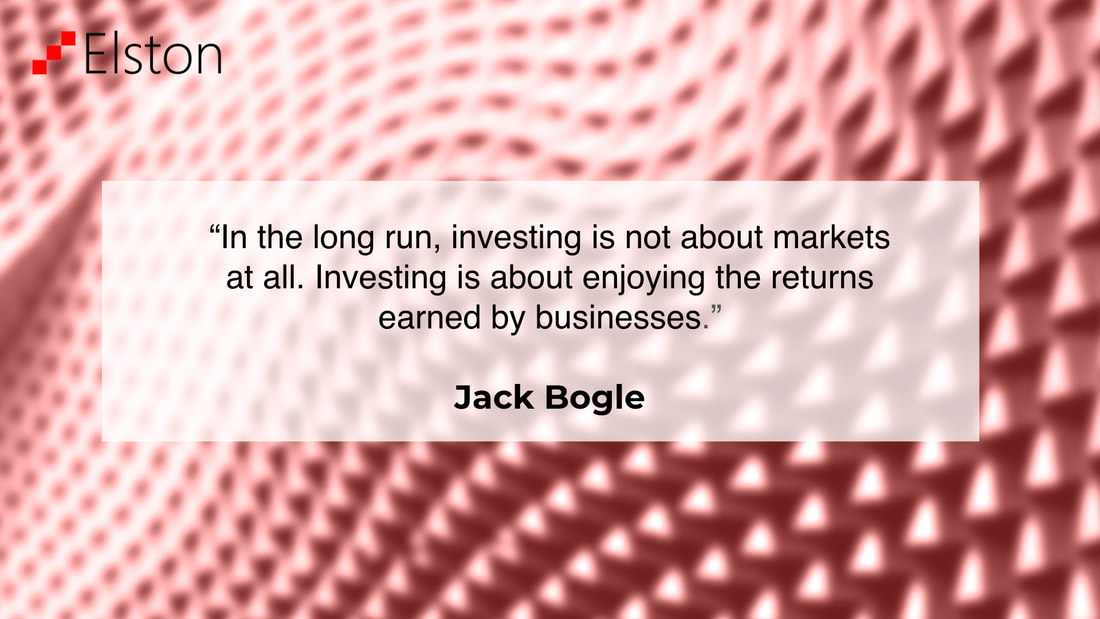|
Think of investing, and most people think of the financial market. They think of share prices going up and down, bull runs and bear markets, spectacular successes and the occasional market crash.
The media is partly responsible. Journalists are constantly looking for stories. They have a vested interest in making investing seem exciting. That’s why they love the drama of the stock market. Every day, newspapers publish the prices of hundreds of securities, and there are regular updates on radio and television on the latest news from the trading floor. The impression given is that investors need to keep up with the markets, and what the experts are saying about them, constantly. The truth, however, is rather more prosaic. Successful investing is essentially very dull. It’s about filtering out the noise and focusing on a few fundamentals — ensuring you’re taking an appropriate amount of risk, keeping your costs low and diversifying broadly. Apart from rebalancing your portfolio every year or so, there really isn’t anything else to do. In The Little Book of Common Sense Investing Jack Bogle wrote that “the stock market is a giant distraction from the business of investing”. In the long run, he explained, “investing is not about markets at all (but) about enjoying the returns earned by businesses.” This is an altogether better way to think about investing. At a basic level, it’s about sharing in the profits of capitalism. Companies distribute those profits in the form of dividends, generally paying higher dividends when they’re doing well, and lower dividends when they’re not. The price of shares in a particular firm tends to go up when the market expects its profits to rise, and down when profits are expected to fall. That’s why the stock market constantly fluctuates, and why, in the short term, it can be extremely volatile. Sensible investors, however, take a long-term view. No, they’re not blind to risks such as global warming, terrorism and the threat of nuclear war. But they believe that, in general, capitalism is a system that works and that fairly rewards those who invest in in. They believe in the resilience of human enterprise and that, whatever happens in the next 30, 40 or 50 years, there will still be a demand for goods and services, and that companies will continue to make profits. You should see investing, then, as claiming your rightful share to the proceeds of global capitalism. Remember, though, that there are all sorts of third parties — fund managers, brokers, investment platforms and so on — who would like to grab part of your share for themselves. Warren Buffett told a story in his 2006 letter to Berkshire Hathaway shareholders, which every investor should read. It concerns the Gotrocks family, which owns all of corporate America, and receives the full value of the profits earned by those companies. Then a group of people, which Buffett calls the Helpers, offer to assist some family members to outsmart the others, "for a fee, of course". So, while the total profit earned by the Gotrocks family doesn't change, they don't get it all, having to pay some to the Helpers. The profit of the companies owned by the Gotrocks family doesn't increase, but with more and more Helpers, charging more and more fees, the Gotrocks actually end up worse off. Buffett’s right. There are too many Helpers in the investing industry. By removing multiple layers of “help”, which you can do by simply using low-cost index funds, you’ll end up keeping a much larger share of your investment returns for yourself. So, go ahead. Claim your share of the proceeds of capitalism for yourself. It’s there for the taking — if only you can keep a long-term focus and resist the temptation to get caught up in all that market excitement. Comments are closed.
|
ELSTON RESEARCHinsights inform solutions Categories
All
Archives
July 2024
|
Company |
Solutions |
|


 RSS Feed
RSS Feed